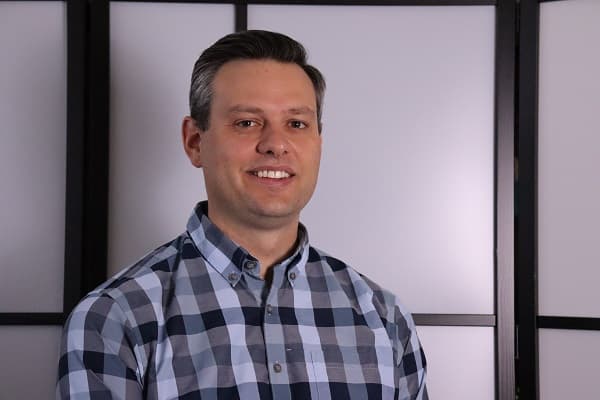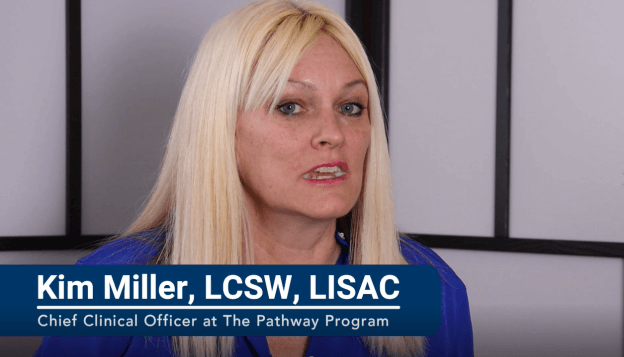Watch this video about adolescent drug use and addiction with Dr. Matt Klein, DO, the psychiatric consultant for The Pathway Program, and is board certified in psychiatry and adolescent psychiatry.
If you would prefer to read, rather than watch the video, scroll down to find a transcript of the interview. Also, timestamps are provided directly below the video if you would like to skip to a specific question.
Timestamps
- 0:20 – Can you give us a brief overview of who you are and what your role is at the pathway program?
- 2:25 – What type of patients do you typically work with at the pathway program?
- 3:19 – What do you think the young people you meet with drug problems typically struggle with the most?
- 5:57 – Many parents struggle to determine which came first, the drug use or the mental health symptoms. What would you say to parents in this sort of “chicken and egg” debate?
- 9:04 – What trends have you noticed among the young people you have seen over the past few years?
- 10:58 – If you could give a single piece of advice to a parent who finds themself trying to help their drug or alcohol abusing son or daughter, what would it be?
Q: Can you give us a brief overview of who you are and what your role is at the pathway program?
A: I’m Dr. Matt Klein; I’m a psychiatrist here in Arizona. I am a DO, and I’m board certified in psychiatry, as well as child and adolescent psychiatry. I’m also a psychiatric consultant for Pathway. My role at Pathway includes providing input in a general sense for certain situations, or if someone needs more specific psychiatric help, they will see me for evaluation and further management. What that has often incorporated is young people who were abusing drugs, they weren’t telling their family, and they look like they have all kinds of disorders as a result of that. The family did what was reasonable and took them to a professional. Because this young person doesn’t want to stop using drugs, they lie about that, and end up with diagnoses and prescriptions and oftentimes that may not be the case because of the drug use causing a lot of emotional lability and depression and anxiety, especially anxiety, when they are not on drugs. Many of these things can resolve and we’ve seen many cases where they just resolve naturally through the treatment at Pathway. My role is often to take a reevaluation, especially when the person in treatment has become more honest about what has been going on, and really reevaluating what is appropriate or needed and working with someone through that process.
Q: What type of patients do you typically work with at the pathway program?
A: The people I usually see at Pathway are people who are in the Pathway program – adolescents and young adults with drug problems. Most typically I’m just reevaluating the patient because they have become honest about their drug use and prior to that may have appeared to have other problems because they weren’t honest about drug use and showing a lot of emotional lability or depression or anxiety or all these other things which could be a part of their drug abuse. Reevaluating that, and reevaluating their medications and helping support them through that process, especially while they are in outpatient [treatment for drugs].
Q: What do you think the young people you meet with drug problems typically struggle with the most?
A: A common problem when people are abusing drugs, especially young people, is that adolescents are at a time in life where they are getting out in the world, socializing, and learning how to navigate these situations, and often don’t have a lot of skills. It’s a time in life where they are developing these skills. The natural thing would be, if you make a mistake, to feel bad about it, go back, and amend the situation or learn to not do that again. Whatever the situation is, the consequences of life will help guide someone through that process and learn how to form and maintain relationships. If you say something that hurts someone’s feelings, you should probably feel some guilt; that’s a natural consequence of that. When people start using drugs, they abort that process. If a mistake is made, well, it’s OK because tonight, I’m getting high. That’s the process they begin to develop, and as a result, that whole natural developmental process of socializing and learning how to have emotions and respond to emotions really gets arrested because there’s a quick fix. That’s probably the most common theme I see among people I work with at Pathway. They have a reason to come off drugs, but then they feel totally inadequate because they don’t have any skills, and it’s really intimidating. It creates some extra anxiety because I’m losing the one thing that helped me through all this, and on top of that don’t have any other options, and so it leaves people really anxious. That, across the board, really does resolve throughout treatment at Pathway as people begin to go back and go through that process of developing skills and things that they are missing.
Q: Many parents struggle to determine which came first, the drug use or the mental health symptoms. What would you say to parents in this sort of “chicken and egg” debate?
A: In the substance use treatment world, or mental health world, there has been a lot of talk about this term “dual-diagnosis”. That typically has meant that someone has a drug problem, and another psychiatric problem. These can be viewed in a lot of different ways. Some people see that someone was depressed or anxious and they used drugs to deal with it, and really the problem is that they are depressed and anxious. Through our experience here, that we’ve seen, when the drug problem isn’t addressed, those other problems don’t get addressed anyway. So, regardless of if it’s dual-diagnosis or not, if the drug problem is not addressed, the underlying issues or the other problems, even if those other problems didn’t contribute to the drug problem, they still won’t get addressed very well, if at all, while using drugs. On the flip side, sometimes people start using drugs first, especially young people. They love to start using drugs because it’s fun and their friends are doing it. Throughout that process, they become dependent and it becomes their coping tool. These patients will often develop depression as a result of their drug use, or become anxious because a lot of drugs, when you’re not using them, create anxiety as more of a withdrawal effect or prolonged withdrawal effect. If someone’s dependent on drugs, and they don’t have drugs coming in or they’re not sure where they’re coming from, those people get very anxious at that time. It can be sometimes very difficult to tell, especially at the very beginning of treatment if someone had an underlying issue that contributed to the drug use or if their drug use created other issues that then become their own separate issues. The bottom line is you’ve got to take care of the drug use before you can proceed successfully in any other of those areas, at least from our experience and what we’ve seen. You’ll often find that when you address the drug problem to help someone keep from returning to the drug problem, they will have to begin working out how to cope with these other things.
Q: What trends have you noticed among the young people you have seen over the past few years?
A: Some of the trends I’ve seen… One that’s particularly interesting to me is that in the past few years people’s first drug use, at least that we’re seeing at Pathway has not been alcohol. Years ago, almost everyone’s first experience of drug abuse was alcohol, because it was so accessible. A common situation was being at a big wedding and there was alcohol easily accessible and that would be someone’s first experience using – alcohol or getting drunk before any other drug use. Today it’s much different. Very commonly the first use we are seeing is marijuana, which makes me wonder if marijuana is more accessible than alcohol to young people. That’s unfortunate, because there’s a lot of negative effects of marijuana on adolescent brain development, and that’s pretty well researched. The other trend I see is pill abuse starting really young. Sometimes that’s someone’s first introduction to drug use, even before alcohol, is getting Xanax from a friend. Benzodiazepines are a huge issue. There’s a lot of talk about the opioid epidemic and that’s a big issue as well, but we’re seeing a lot of people using benzodiazepines early or before other substances that they are abusing. These are dangerous substances. People can become addicted and have very serious consequences from withdrawal from them.
Q: If you could give a single piece of advice to a parent who finds themself trying to help their drug or alcohol abusing son or daughter, what would it be?
A: If I had some brief advice to parents in general, if you find out your child is using drugs, seek professional help or get a professional opinion, especially from people in the substance use field. A lot of people think, maybe this is just a phase, or it was just a phase for me and I’m OK now, but what if it’s not? Do you want to take that risk? If you find that your child is using drugs or alcohol, I’d say take it seriously. Get an evaluation or help from someone – a professional in the field of addiction and don’t take that risk.






